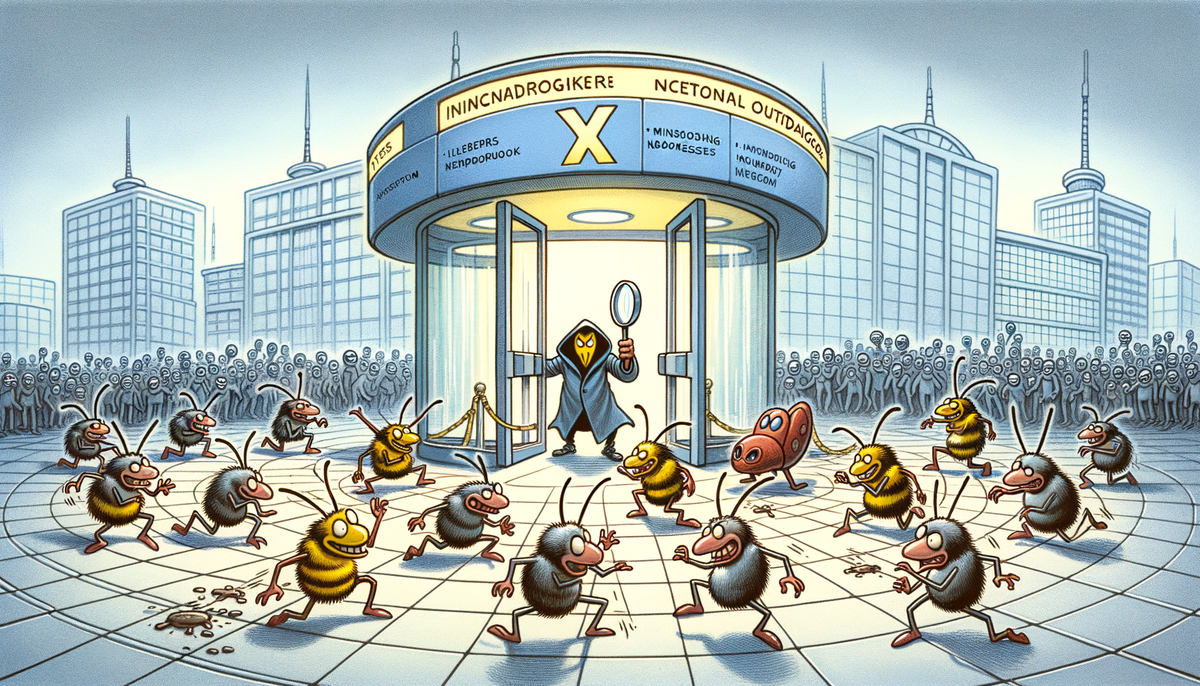Elon's X- Files: When DDoS Attacks Meet Dodgy Data and Dubious Declarations (or, How Not to Handle a Hacking Crisis)

Right, let's talk about Twitter. Or X, or whatever Elon's calling it this week. It seems our favourite microblogging platform had a bit of a whoopsie recently – a flurry of outages, apparently caused by a DDoS attack. Now, DDoS attacks are never fun. It's like a thousand tiny digital hooligans all trying to barge through the same revolving door, leaving everyone else locked out.
But this hacking incident took a turn for the bizarre, landing squarely in the "only on X" territory.
The Blame Game Begins
First, we have the Dark Storm hacking group claiming responsibility, helpfully posting evidence in the form of CheckHost.net reports. You know, for authenticity. Then, the always-reliable Ed Krassenstein chiming in, claiming to be in contact with the Dark Storm's leader, who, rather charmingly, described the attack as "just a demonstration of our strength." Right then.
Elon Enters the Fray (and Exits Reality?)
And then, of course, there's Elon. Never one to be left out of a good dust-up, he initially acknowledged the attack, noting it was done with "a lot of resources" and could involve a "large, coordinated group and/or a country." Fair enough. Standard cyber-attack stuff.
But then things got interesting. In a national television appearance, Elon declared that a preliminary investigation had revealed a connection to Ukraine, citing IP addresses originating in the region. Now, I'm no tech expert, but I know enough to understand that IP addresses can be, shall we say, *misleading*.
The Krassenstein Rebuttal
Cue Krassenstein again, riding to the rescue with...screenshots of chats with Dark Storm, who flatly denied being in Ukraine. "Elon Musk must provide evidence for his claim, and we will provide evidence for ours," they huffed, like aggrieved villains in a low-budget spy movie.
Krassenstein even claimed to have spoken to Elon directly, informing him of his conversation with Dark Storm. This, naturally, did nothing to dissuade Elon from his Ukrainian IP theory. "This seems like an attempt to attack Ukraine to me," Krassenstein added dryly. You don't say?
Nation-States and Cyberwarfare (Maybe?)
So, what's the truth? Well, nobody seems entirely sure. Experts suggest nation-state involvement is a possibility, citing X's relentless cyberattacks and the current political climate. "This isn't incompetence; it's cyberwar hitting at full force," said Chad Cragle, CISO at DeepWatch. Goodness me. That is a little bit of hyperbole.
Meanwhile, Dark Storm reportedly threatened further attacks on X, Tesla, and other Elon-related entities. They are apparently miffed at the Ukraine implications. They are a hacktivist group known for targeting those perceived to support Israel, so, you know, business as usual.
In Conclusion: A Right Royal Mess
So, there you have it. A cyberattack, a shadowy hacking group, dubious data, questionable claims, and a healthy dose of Elon Musk's unique brand of pronouncements. It's like a poorly written spy thriller where the plot twists are less "shocking revelation" and more "huh?". The internet, what a place. #Cybersecurity #ElonMusk #X #DDoS #Ukraine #DarkStorm #Hacking #TechNews #SocialMedia
Comments ()